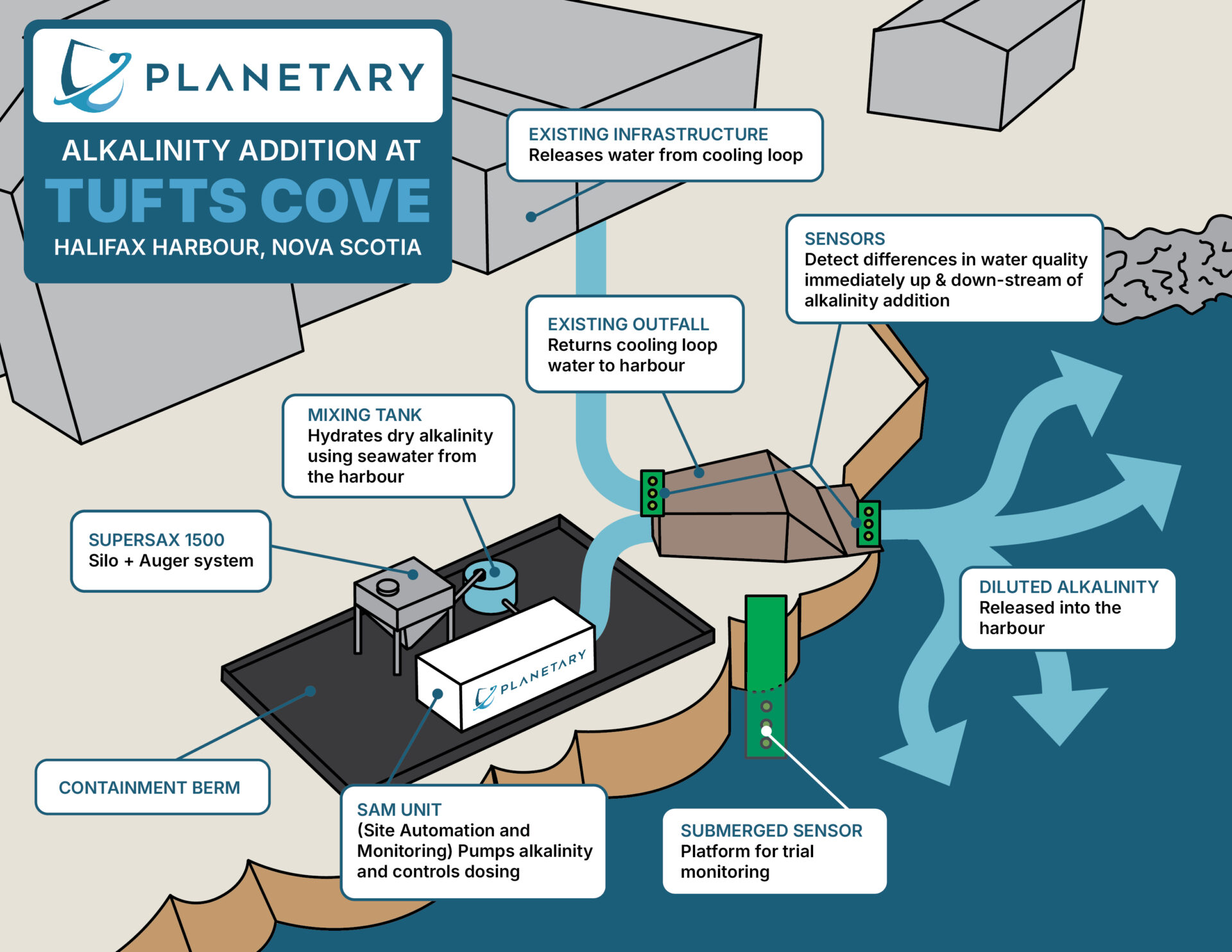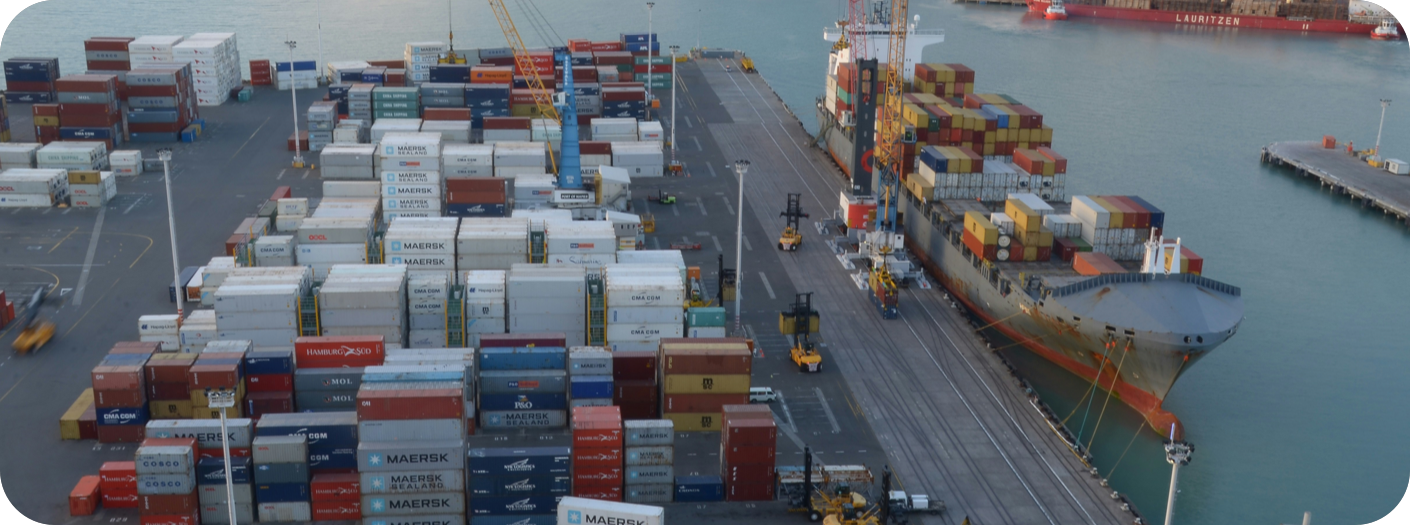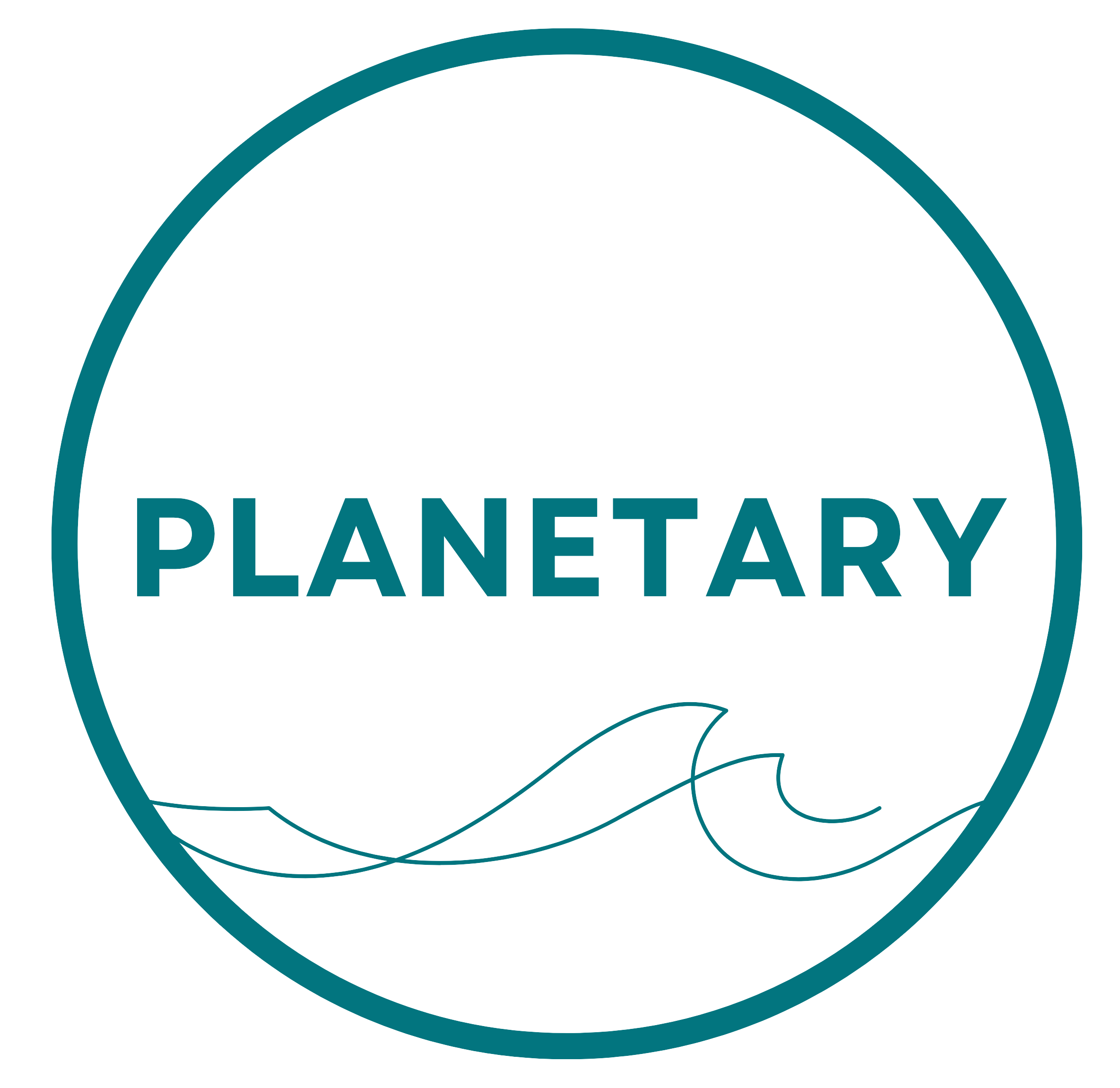Project Overview
Tufts Cove represents a breakthrough in Ocean Alkalinity Enhancement (OAE) technology, demonstrating that we can effectively remove CO₂ from the atmosphere using the ocean’s natural carbon cycle. Our “Tank on a Tarp” approach emphasizes simplicity that drives scale, with a tiny footprint delivering massive impact.
At just 3,200 sq ft., our facility removes 3x the CO₂ of the largest Direct Air Capture plant while using only 8% of the space. The site’s electricity consumption is less than 10 kWh/tCO₂, making it one of the most energy-efficient carbon removal solutions available today.
What makes Tufts Cove special is the enclosed, retentive harbor creates a “living lab” environment with ideal ocean conditions for both operation and measurement.
Project Details
Began Dosing
September 2023
Location
Coastal waters of Nova Scotia, Canada
Current Phase
Currently dosing and engaging communities
Partners
Dalhousie University, local environmental organizations, and community stakeholders
Current Status
Tonnes dosed for carbon removal
tonnes dosed
Research boat surveys
Trips completed
Operational days
since October 2024
Latest Measurements
pH increase directly at the point of discharge
since May 1, 2025
CO2 gradient
ocean to atmosphere

Simplicity Drives Scale
Our revolutionary approach uses minimal infrastructure to achieve maximum impact. The entire operation fits within just two shipping containers, yet delivers 10k+ tonne scale carbon removal annually.
- Rapidly dissolving CaO & MgO balance scale and measurability
- ~1:1 net CDR to feedstock ratio means low costs and high flexibility
- Aligned with existing regulatory structures
- Replicable to all 4 Tufts Cove onsite outfalls

Remove carbon with us.
Learn more
Impact & Benefits
Environmental Impact
- 10k+ tonnes CO₂ removed annually in current phase
- Scaling to all 4 outfalls
- Ocean deacidification with measurable pH increases
Scientific Advancement
- Many published papers, with many more being worked on
- Visiting researcher program draws global expertise
- Advanced MRV methodologies years ahead of other projects
- 20+ students and post-docs receiving training
Community Benefits
- Local job creation and skills development
- Educational opportunities for students and researchers
- Positioning Nova Scotia as a leader in climate solutions

For frequently asked questions specific to this project, please visit our Nova Scotia FAQs.


 Nova Scotia, Canada
Nova Scotia, Canada Active Project
Active Project 10,000 tonnes projected in 2025
10,000 tonnes projected in 2025